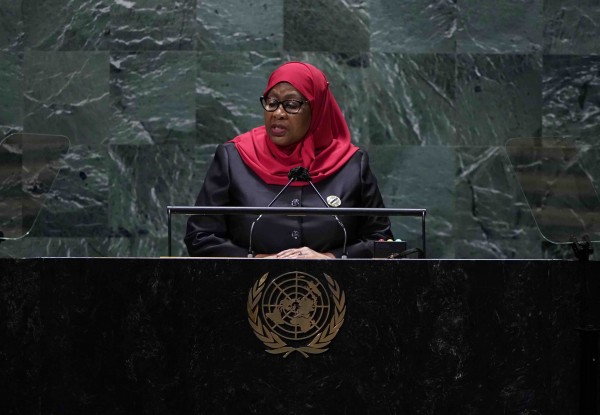The International Press Institute (IPI) today expressed deep concern over Tanzanian authorities’ decision last week to suspend highly circulated regional newspaper The East African.
The newspaper, which has been in publication for 20 years, was removed from circulation following notice by Tanzanian officials in a Jan. 21 letter that it must cease publication until it registered with authorities under the country’s Newspaper Act.
However, The East African attributed the ban to its coverage of the government. Bureau chief Christopher Kidanka said that, prior to the notice, Tanzanian Director of Information Services Assah Mwambene summoned him for interrogation and told him the newspaper endorsed a “negative agenda against Tanzania”. Mwambene also criticised the paper’s reporting and analysis, including its opinion articles, The East African reported, and its publication of a satirical cartoon depicting President Jakaya Kikwete.
“It’s unacceptable that a simple cartoon can create such a reaction,” Linus Gitahi, Group CEO of the Nairobi-based Nation Media Group, of which The East African is a part, and a member of IPI’s Executive Board, said. “When other countries like France are standing with their journalists, shutting down is an extreme measure that we urge the government to reconsider.”
Gitahi noted that the The East African was “the only paper that serves the interests of the East Africa community as it circulates almost evenly across the member states”.
On Monday, the EU, Canada, Norway and Switzerland also issued a statement outlining their concerns, calling on the government “to make every effort to preserve the freedom of expression in Tanzania”.
Some observers cast doubt on the government’s motives given the upcoming October presidential and parliamentary elections.
“Surely they can’t just wake up now and declare us illegal,” Nation Media Group Chairman Wilfred Kiboro said. “If it was an issue of regularising files, that does not require such a draconian measure of banning a newspaper.”
IPI Director of Advocacy and Communications Steven M. Ellis called on Tanzanian authorities to reverse the ban immediately.
“Especially in light of the upcoming elections, Tanzania must exercise diligence in protecting the rights of citizens to receive information and the right of news media outlets such as The East African to freely share it with them,” he said. “If the problem is merely a failure to register, authorities should work with the newspaper to allow it to meet that formality, rather than take the heavy-handed step of shutting it down.”
This ban on The East African marks the second time in recent years that Tanzania has suspended publication of a newspaper. In 2013, the government also temporarily barred publication of the Mwananchi, also part of the Nation Media Group in Nairobi, and the Mtanzania, owned by New Habari Ltd., based on complaints that the popular Swahili newspapers violated secrecy and sedition laws. In July 2012, the government also invoked sedition allegations against the Mwana Halisi newspaper, ordering its indefinite suspension.
Tanzania’s Newspaper Act of 1976 gives the government power to close publications it deems to have incited violence against the state, according to the Media Council of Tanzania (MCT), the country’s independent media regulatory body.



